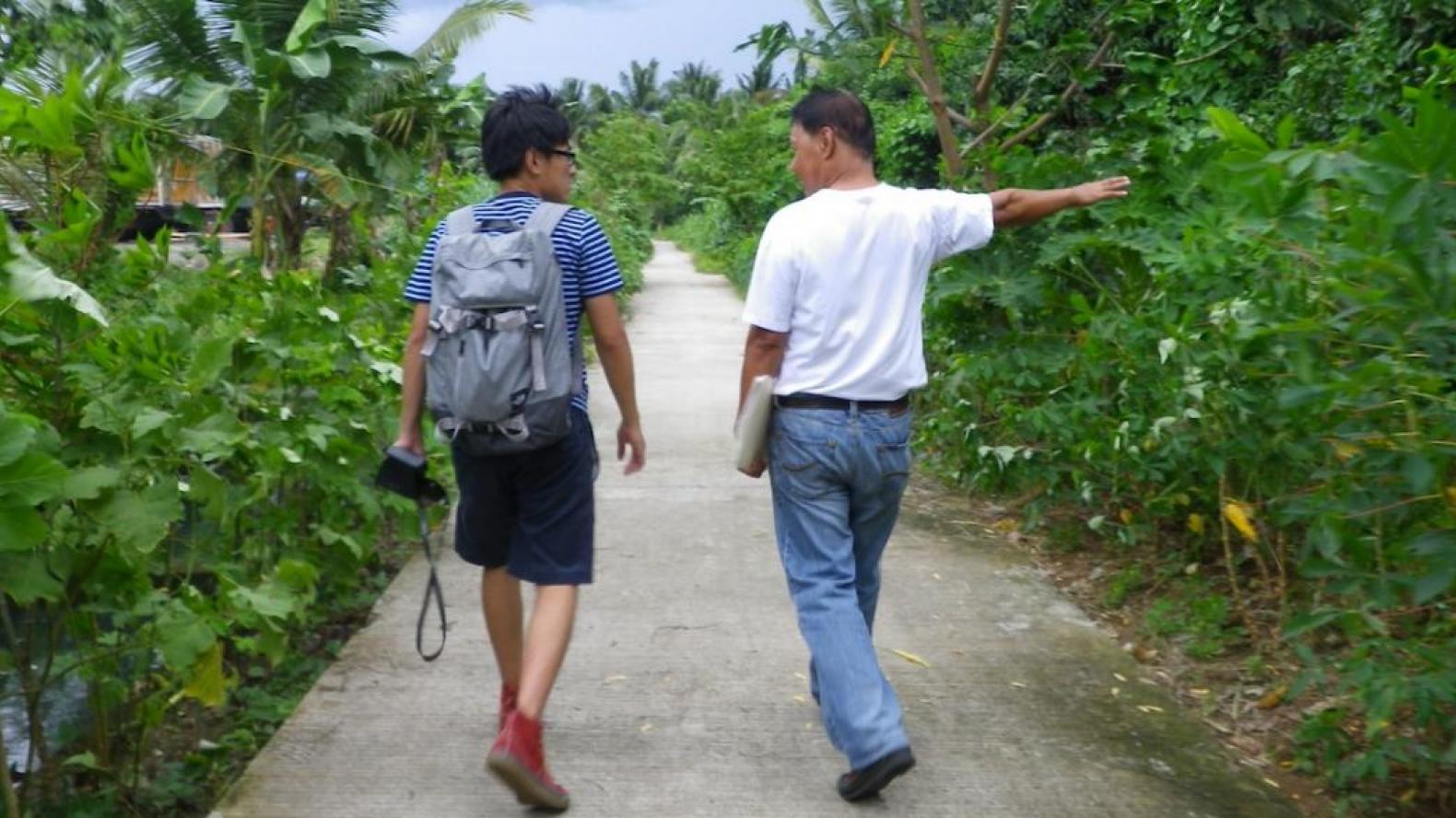
Nine students from the UBC School of Community and Regional Planning (SCARP) recently traveled to the province of Bulacan, Philippines to help administrators address local climate change issues.
Taught by Prof. Leonora Angeles, the interactive Philippine Planning Studio Course provided the students with an environment to develop an action plan for a region vulnerable to climate change.
The students engaged with municipal and provincial planning staff, as well as local residents in Bulacan to formulate climate change and climate-risk adaptation plans in urbanizing watershed and river basin areas in the developing country.
The class consisted of students Krystie Babalos, Christa Brown, Eliana Chia, Lavino Chen, Gabrielle Esser, Melanie Harding, Daniel Iwama, Frankie Mao and Sarah Thomas.
“The journey was transformative,” said Babalos. “We were escorted to the neighborhoods most vulnerable to the impacts of climate change. We listened to the community members’ stories of strength and resilience in the face of poverty and marginalization and to their needs for adapting to climate change in the future.”
The studio-style course also gave the students practical, hands-on experience.
“The studio contributed to my toolkit of hard skills that will benefit my planning career,” Iwama said. “Working directly with local governments operating under extreme resource constraints and with highly vulnerable populations challenged us to be not only strategic problem solvers, but also empathetic professionals.”
“It also gave me a chance to put theory into action,” added Thomas. “The importance of participatory engagement, of being clear of your role in the place, of adapting to the flow of the local culture and of being open to share experiences all stood out as key learnings.”
The students examined a wide array of priority areas such as water sufficiency, natural resource management, land use and climate-smart industry, identifying some of the major local challenges as air pollution, depleting water supplies and the changing ecology of the region due to contamination and climate change.
“Participating in the course allowed me to develop my understanding of the interconnectedness of multiple planning issues,” Brown said. “Climate change is a global issue, but with very specific local impacts. Other factors such as globalization, urbanization and population growth all influence the way communities develop and affect their capacity to adapt to climate-related changes. The experiential leaning helped me understand these connections more deeply.”
The innovative course allowed the students to present their research to the Municipal Governments of Bulacan, as well as in the “New Directions in Applied Research” international conference hosted by Bulacan State University and De La Salle University-Manila.
August 28, 2013